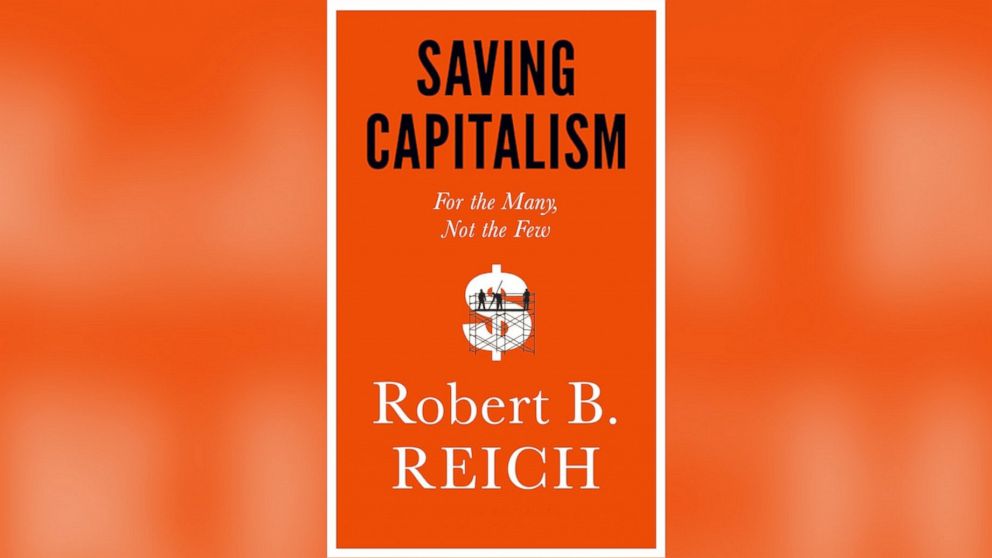Book Excerpt: Robert Reich's 'Saving Capitalism'

— -- Excerpted from Saving Capitalism by Robert B. Reich Copyright © 2015 by Robert B. Reich. Excerpted by permission of Knopf. All rights reserved. No part of this excerpt may be reproduced or reprinted without permission in writing from the publisher.
The Prevailing View:
It usually occurs in a small theater or a lecture hall. Someone introduces me and then introduces a person who is there to debate me. My debate opponent and I then spend five or ten minutes sparring over the chosen topic—education, poverty, income inequality, taxes, executive pay, middle-class wages, climate change, drug trafficking, whatever. It doesn’t matter. Because, with astounding regularity, the debate soon turns to whether the “free market” is better at doing something than government.
I do not invite this. In fact, as I’ve already said and will soon explain, I view it as a meaningless debate. Worse, it’s a distraction from what we should be debating. Intentional or not, it deflects the public’s attention from what’s really at issue.
Few ideas have more profoundly poisoned the minds of more people than the notion of a “free market” existing somewhere in the universe, into which government “intrudes.” In this view, whatever inequality or insecurity the market generates is assumed to be the natural and inevitable consequence of impersonal “market forces.” What you’re paid is simply a measure of what you’re worth in the market. If you aren’t paid enough to live on, so be it. If others rake in billions, they must be worth it. If millions of people are unemployed or their paychecks are shrinking or they have to work two or three jobs and have no idea what they’ll be earning next month or even next week, that’s unfortunate but it’s the outcome of “market forces.”
According to this view, whatever we might do to reduce inequality or economic insecurity—to make the economy work for most of us—runs the risk of distorting the market and causing it to be less efficient, or of producing unintended consequences that may end up harming us. Although market imperfections such as pollution or unsafe workplaces, or the need for public goods such as basic research or even aid to the poor, may require the government to intervene on occasion, these instances are exceptions to the general rule that the market knows best.
The prevailing view is so dominant that it is now almost taken for granted. It is taught in almost every course on introductory economics. It has found its way into everyday public discourse. One hears it expressed by politicians on both sides of the aisle.
The question typically left to debate is how much intervention is warranted. Conservatives want a smaller government and less intervention; liberals want a larger and more activist government. This has become the interminable debate, the bone of contention that splits left from right in America and in much of the rest of the capitalist world. One’s response to it typically depends on which you trust most (the least): the government or the “free market.”




